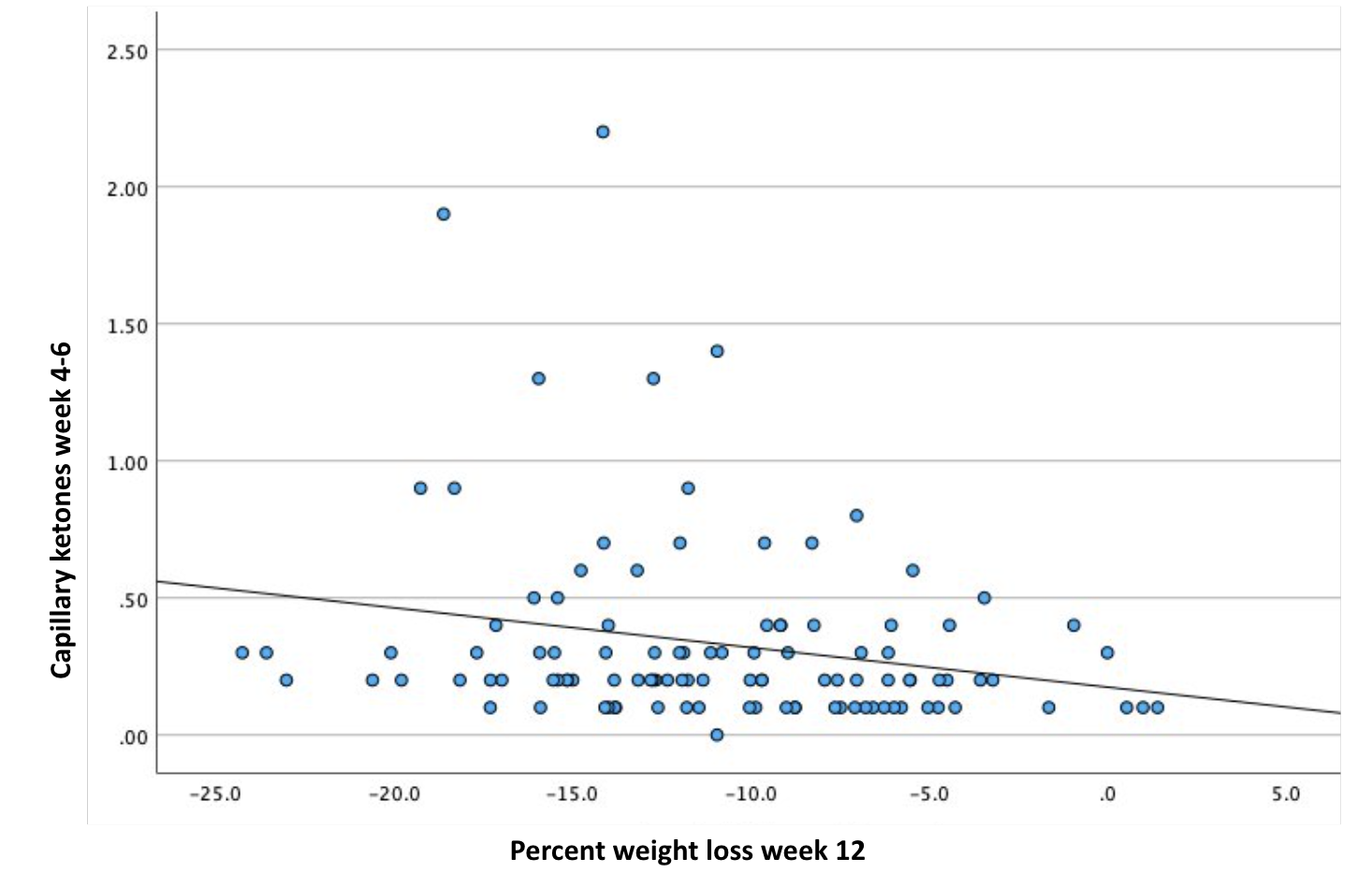Poster Presentation ESA-SRB-ANZOS 2025 in conjunction with ENSA
Ketones and Kilograms: Exploring Predictors of Weight Loss Success in a Structured Obesity Program (#414)
This study investigated whether capillary ketone levels are a predictor of weight loss success during our tertiary obesity multidisciplinary service (TOMS) using a 12-week very low energy diet (VLED) plus exercise with group support.
A total of 108 participants were included for analysis. Capillary ketone levels were measured at week two of the intervention, and weight was monitored throughout the program. Participants were categorised based on their ketone levels into two groups: non ketotic state (0–0.5 mmol/L, n=91) and nutritional ketosis (0.6–2.2 mmol/L, n=17). Weight loss was assessed as a percentage of initial body weight. The association between percentage weight loss and ketone level was assessed with a rank correlation.
Participants in the nutritional ketosis group experienced a greater mean weight loss compared to those in the non ketotic state (12.3% vs 10.7%; SD 5.5, 4.5, p=0.2). The mean ketone level in the non ketotic group was 0.2mmol/L and 1.0 mmol/L for the nutritional ketosis group (SD 0.1, 0.5). Treating percentage change in body weight and ketone levels as continuous variables, there was a moderate, but statistically significant, Spearman rank correlation between the two (rs = 0.258, p 0.007).
This data shows that a positive ketone test is a good predictor of weight loss outcomes, but a negative ketone test has poor predictive value as participants who did not reach nutritional ketosis still achieved clinically significant weight loss. This indicates that nutritional ketosis is not essential for successful outcomes. These findings highlight the potential role of nutritional ketosis as a supportive, but not necessary, factor in weight management strategies. Future research may consider the inclusion of repeated capillary ketone testing throughout the intervention. 